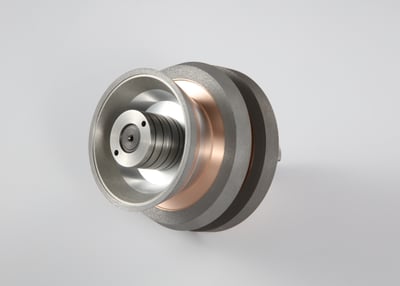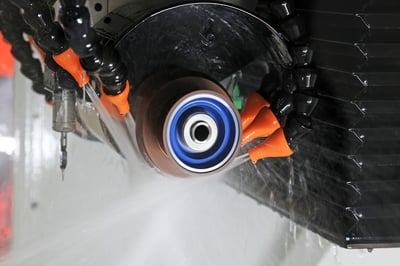Which Diamond Wheel Lasts The Longest?
In the world of precision grinding, the choice of a diamond wheel is not just about cutting through the toughest materials; it's about the balancing act of longevity and speed of cut. A diamond wheel that lasts the longest, or grinds most efficiently, isn't merely a tool; it's an investment in efficiency and productivity.

The Basics of Diamond Wheels
Diamond wheels are the unsung heroes of grinding operations. Their ability to handle the hardest materials, from carbide to ceramics, is unmatched. However, not all diamond wheels are created equal, and their lifespan is a critical factor for industries that demand both precision and durability.
Understanding Diamond Bond Types
The longevity of a diamond wheel is heavily influenced by its bond type. The bond is the matrix that holds the diamond particles in place. There are three primary bond types: resin, metal, and vitrified.
- Resin Bond: Known for its elasticity, resin bonds are suitable for applications requiring precision. However, they may wear faster than other bonds.
- Metal Bond: Ideal for grinding harder materials, metal bonds are durable but can be less forgiving in terms of precision.
- Vitrified Bond: Combining the best of both worlds, vitrified bonds offer a balance between precision and durability, making them a popular choice for many applications.
Factors Influencing Longevity
Several factors contribute to the lifespan of a diamond wheel, and understanding them is crucial for making an informed decision.
-
Abrasive Material:
The type of material being ground has a direct impact on the wear and tear of the diamond wheel. Harder materials, such as tungsten carbide or ceramics, can be more abrasive and thus wear down the wheel faster.
-
Grit Size:
The grit size of the diamond particles on the wheel affects the rate of material removal. Coarser grits may remove material more quickly but can lead to a rougher finish and faster wheel wear.
-
Operating Speed:
The speed at which the wheel operates influences its longevity. High speeds generate more heat, affecting both the bond and the diamond particles.
-
Coolant Usage:
Proper cooling is crucial for extending the life of a diamond wheel. Coolant not only reduces heat but also helps prevent the wheel from clogging with material residue.
-
Feed Rate:
The rate at which the wheel engages with the workpiece, known as the feed rate, affects the pressure on the diamond particles. Finding the right balance is key to maximizing wheel life.

Types of Diamond Wheels and Their Longevity
Now, let's explore specific types of diamond wheels and their reputations for durability:
-
Resin Bond Diamond Wheels:
Resin bond wheels are known for their precision and ability to achieve fine finishes. However, they may wear faster, especially when dealing with tougher materials. These are ideal for applications where precision is paramount but can be less cost-effective in high-wear scenarios.
-
Metal Bond Diamond Wheels:
Metal bond wheels are heavy-duty players, designed for grinding applications involving hard and abrasive materials. While they offer excellent durability, their rigidity may result in a compromise on precision. These wheels are often chosen for their longevity in applications where wear resistance is crucial.
-
Vitrified Bond Diamond Wheels:
Vitrified bond wheels strike a balance between resin and metal bonds. They are renowned for their versatility, providing a good combination of precision and durability. This makes vitrified bond diamond wheels a popular choice for a wide range of grinding applications.
Making the Right Choice for Longevity
Choosing the diamond wheel with the longest lifespan involves careful consideration of factors unique to each application. While resin bond wheels are ideal for precision-centric tasks, metal bond wheels excel in heavy-duty applications. Vitrified bond wheels, offering a middle ground, are often the preferred choice for those seeking a versatile solution.
It's crucial to consult with manufacturers, leverage user reviews, and consider specific application requirements before making a decision. Investing in a diamond wheel with longevity not only ensures a more efficient grinding process but also contributes to cost savings over time.
The Verdict: It's a Balancing Act
In the quest for the diamond wheel that lasts the longest, the answer is not one-size-fits-all. It's a delicate balancing act between precision, efficiency and durability, with the choice ultimately hinging on the specific needs of the application. Whether it's the finesse of resin, the robustness of metal, or the versatility of vitrified bonds, the right diamond wheel can transform a grinding process into a seamless and enduring operation.
Recent Posts
Subscribe to email updates
Subscribe to our blog to get the latest updates from the experts on Grinding Wheels! You can easily unsubscribe at any time




